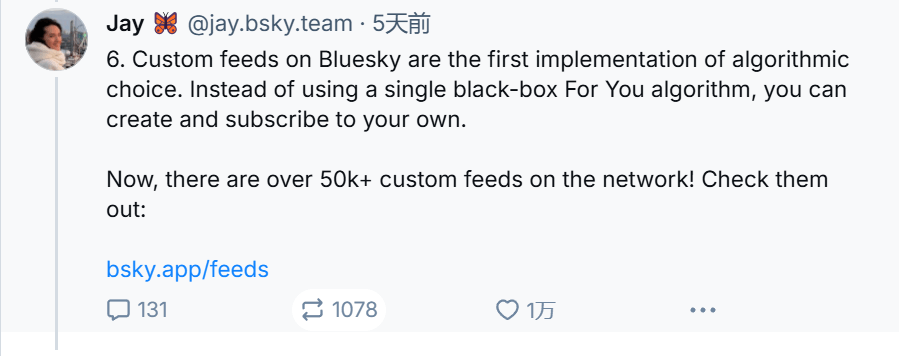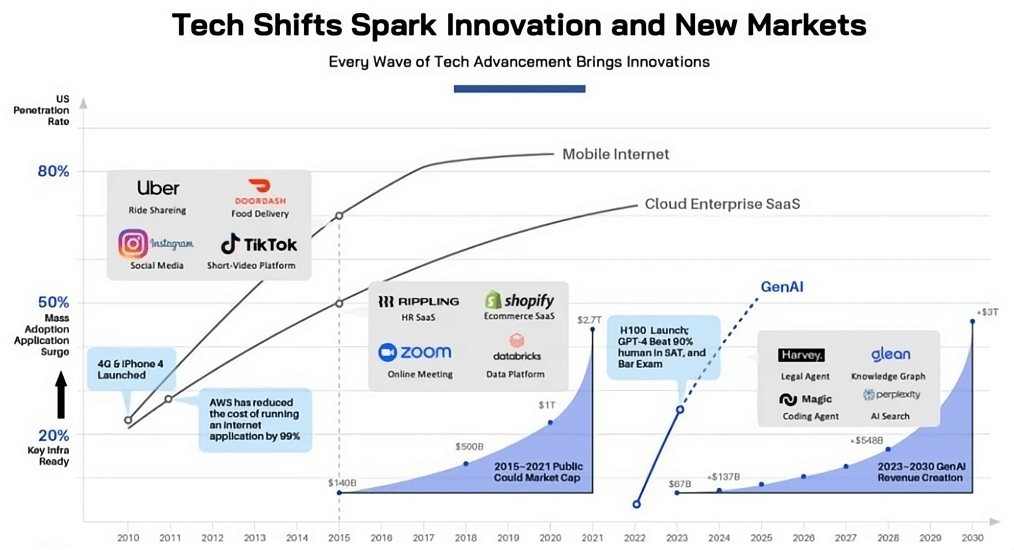Technically, Bluesky was initially inspired by the peer-to-peer protocol Secure Scuttlebutt (SSB). Over the course of product development, the team ultimately turned to its own open protocol, AT Protocol. People who dislike Elon Musk are fleeing the X platform.
However, it’s not Meta’s Threads that is benefiting, but rather the open-source social platform Bluesky, which evolved from the former Twitter project!
According to Similarweb data cited by the Financial Times, Bluesky’s user base has grown by 300% since election day.
How Dramatic Is the Popularity Surge Triggered by “X’s Troubles”?
Earlier this month, Meta’s Threads had five times as many active users as Bluesky, but now, Bluesky’s daily active users have surged to 3.5 million, narrowing the gap to just 1.5 times that of Threads!
Bluesky’s decentralized idea came from former Twitter CEO Jack Dorsey. He believed that "Twitter should be a protocol, not a company." To achieve this vision, Bluesky was born and successfully spun off just before Musk acquired X.
Technically, Bluesky was initially inspired by the peer-to-peer protocol Secure Scuttlebutt (SSB). Over the course of product development, the team ultimately turned to its own open protocol, AT Protocol.
To implement the idea of decentralizing control to users, Bluesky allows users to freely choose their own moderation system and recommendation algorithm.

Image: The custom subscriptions on Bluesky now allow users to choose their own algorithm. Users can create and subscribe to their own algorithms, rather than using the single "For You" black-box algorithm.
So, how did this "special" social product grow, and could it threaten X?
1. From Scuttlebutt to Beaker, Then to Bluesky
When Bluesky’s user base surpassed 20 million, its CEO Jay Graber listed twenty facts about this Twitter/X competitor, one of which is: "Paul, Bluesky's CTO, developed the earliest version of the Bluesky app, as well as the first Secure Scuttlebutt (SSB) client, a peer-to-peer network protocol."

Paul Frazee, a developer obsessed with peer-to-peer technology, has had a fascinating career that ultimately led him to play a key role in Bluesky.
Around 2014, when New Zealander Dominic Tarr created the Scuttlebutt project, Paul Frazee was the first external developer to join. In a post on Hacker News, Frazee revealed that he developed Patchwork, the first Scuttlebutt client. However, Frazee seemed disappointed by Scuttlebutt, as it wasn’t scalable from an end-user perspective. He described the protocol as an "extremely anarchistic technology model" and expressed concerns about its ability to attract users.
Frazee applied the lessons learned from Scuttlebutt to a new project, Beaker Browser, a Chromium-based peer-to-peer browser. Beaker was clearly inspired by Scuttlebutt.
In Beaker, you store content on your device and sync with the network as needed—this is a "local-first" approach. Beaker also had some cool features. For example, you could "fork" a website and create your own version. However, overall, it was still too technical for regular internet users.
Long story short, Beaker Browser didn’t gain much traction, so Frazee joined Bluesky in early 2022, shifting his focus to the project. However, in December 2022, he wrote a retrospective article on Beaker, admitting that the product was too technical. He also mentioned that "the core spirit of Beaker continues in Bluesky."
It’s worth mentioning that Frazee abandoned Beaker and Scuttlebutt’s "local-first" approach in Bluesky. His explanation was:
“Radically simplify. In Bluesky, we chose to use a peer-to-peer structure (IPLD) on a federated network, which retains some of the key advantages of peer-to-peer, such as account portability, while also retaining the benefits of servers in terms of performance and reliability. Pure peer-to-peer technology still has great potential, but I believe it’s not suitable for large-scale social networks. Insisting on it in Bluesky would be a mistake.”
Thus, instead of pursuing a social media network that stores content on users' devices, Bluesky adopted servers, i.e., the cloud. You could say it’s similar to Twitter but with a federated server approach instead of a centralized one. Additionally, Bluesky allows users to own their identity and content or at least easily migrate it to other servers if they dislike the main server (owned by Bluesky).
2. Product Evolution: In-House Developed Protocol, User-Controlled Data
As the project progressed, the Bluesky team realized the limitations of the SSB architecture.
A major flaw in existing decentralized protocols (including Scuttlebutt) is that users face difficulties when migrating their data.
Bluesky’s solution is a technology called AT Protocol, which supports Bluesky’s own platform while also being open for anyone to use to host their own servers and eventually interoperate with many other networks.

AT Protocol allows users to migrate accounts between different service providers without losing data or connections, addressing a key pain point often encountered by users on platforms like Mastodon (which uses the ActivityPub protocol).
Bluesky’s CEO Jay further explained the reasoning behind developing AT Protocol.
“In 2019, I did an ecosystem review of all existing decentralized protocols, including ActivityPub. After looking into it, we decided we needed to build something different because we found some key features were missing. One of them was composability, and we designed an interface that supports composability. For example, the custom content streams and content management tags we implemented wouldn’t be possible in ActivityPub’s current server-centric design. In ActivityPub, the server itself is almost your community, and everything is centralized on the server. We broke these functions into smaller backend services, which is closer to how large social networks operate in a global stream.”
Another key point is global streams. "We want global search and discovery to be first-class citizens in our design. We want users to know from the beginning that this is public data and will be remixable in global streams in various ways."
They also wanted to ensure account portability. Users should be able to take their identity and data with them and have alternatives. By designing users’ repositories (repos), they allow users to back up all posts to their phones or self-hosted servers, making migration frictionless.
3. Can Decentralized Social Products Go Mainstream?
Bluesky is not shy about its ambition to become a mainstream social media platform and to "steal" as many users from X as possible.
Graber has been very clear about this. In a recent post, she wrote:
“Bluesky is a Public Benefit Corporation (PBC), with the mission of ‘developing and driving the large-scale adoption of open and decentralized public conversation technologies.’ From the beginning, our goal has been to build a decentralized social network that mainstream users can use.”
For users who are tired of X and Musk, Bluesky is undoubtedly an appealing “move.”
However, will Bluesky be able to continue attracting new users from X?
In the short term, the surge in user numbers has caused some issues. In addition to service crashes, there has been an increase in spam and harmful content on the platform. This will bring growing pains for Bluesky.
In the long term, users are the most valuable core resource for social media. The fundamental drive for users to choose a social media platform is that it helps them build and maintain connections with others. Even if a social product has some flaws, once it gathers a critical mass of users early on, it is difficult for them to abandon it.
Right now, although many users (academics, journalists, etc.) are leaving X due to dissatisfaction with Musk’s management style, over time, as emotions settle, some of these users may return. This undoubtedly adds uncertainty to Bluesky's future.
However, as a small team with only 20 full-time employees, Bluesky's current success is enough to make us cautiously optimistic.
CEO Jay wrote in a post that now, Bluesky has about 1 million users per employee, and she also mentioned that the platform is hiring more talent.






